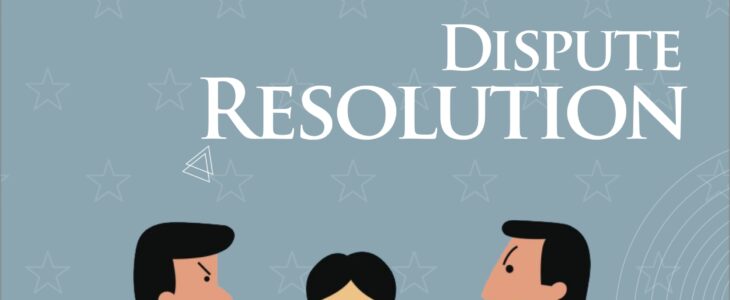
Who is a customer of a bank?
A customer is a person who has an account with a bank or has a relationship with a bank even though he has no account with the bank. The definition of a customer is important to determine who can bring an action against a bank. Generally parties to a contract can sue on it and non-parties to a contract cannot sue even if the contract was made for their benefit. However, in a banking transaction, a person who is not the owner of an account but to which he only deposited money may be able to sue for the money in very limited circumstances, such as if there is denial by the bank of his deposit of money into an account or the account is credited with less than the amount he deposited. In both of these cases, the depositor can sue directly on the basis of the deposit receipt issued to him by the bank. See Ecobank Nig. Plc v. Kunle (2019) 10 NWLR (Pt. 1679) 90.
Also, anyone whose interest may be affected by the representation of a bank is deemed a customer of the bank giving such representation. The foregoing definition of a bank’s customer is consistent with the court’s decision in HEDLEY BYRNE Co v. HELLER PARTNERS, AC 465, 2 ALL ER 575, 3WLR 101, UKHL 4, where the court held that: “A bank can be liable in negligence to a person notwithstanding that he does not have an account with the bank so long as it is reasonably foreseeable that they shall be affected by the bank’s negligence”. This foregoing was also adopted and reiterated in the case of AGBONMAGBE BANK v. CFAO. LTD. 3PLR/1966/16 (SC).
What is the nature of the relationship between a bank and its customer?
The relationship existing between a bank and its customers is a contractual relationship which may, to an extent, be regarded as a debtor-creditor relationship. This relationship may arise in many diverse ways. For example, the relationship may begin when a customer deposits money and the bank on the other hand accepts the deposit. Once the bank accepts the money deposited and opens an account in the customer’s name, a contractual relationship is established. Please note that there are other instances where a banker-customer relationship may arise between a bank and a customer such as lessor and lessee, mortgagor and mortgagee, bailor and bailee, trust and beneficiary, just to mention a few.
Whatever form of contractual relationship exists between a bank and a customer, the Nigerian court will give effect to the intent of the parties as expressed in their contract, whether oral or in writing. The Supreme Court, per Adio J.S.C in U.B.N v. Ozigi (1994) 3 NWLR (Pt 333) 385, 400, in his “guide to interpretation of documents” held that when a document is clear, the operative words in it should be given their simple and ordinary grammatical meaning, and not the business of the court to make a contract for the parties or to rewrite the one which they have made.
What are the rights of a customer?
In order to ensure that the rights of the customer are protected the Central Bank of Nigeria published the Bank Customers’ Bill of Rights dated 30th September 2022, aimed at ensuring that bank’s customers are treated fairly as invaluable stakeholders in the financial sector.
The following are some of the rights as contained in the bill:
i. Right to be informed: A bank customer has the right to be informed or educated of the product and service the bank offers; terms and conditions involved including any changes introduced by the bank, and as well as the right to demand for further clarification, if the need arises. This right enables the customer to make rational choices. The bank will be in breach if it withholds any information or deliberately or negligently misleads the customer in any way. This right is also in accordance with the provision of section 114, Federal Competition and Consumer Protection Act, 2018, which provides that where a customer is required by law to be informed, that such information must be in a language which the customer can understand and comprehend. For example, in UBA PLC V. GOSTAR INVESTMENT CO. LTD, (2018) LPELR-4486 (CA), where the appellant bank refused to honour the cheque issued by the respondent and placed a lien on the account on suspicion of fraudulent transaction, without giving notice of the dishonoured cheque and reason to the customer within a reasonable time. The Court held that the appellant was negligent for its failure to give notice of the dishonoured cheque to the customer within a reasonable time.
ii. Right to privacy and confidentiality: Nigerian law protects customer’s data privacy. A bank cannot share its customer’s information, such as bank details or account balance or any other sensitive information particular to a third party without the customer’s consent. This is in accordance with the right to data privacy provided under the Nigerian Data Protection Regulation 2019 and the Nigerian Data Protection Act 2023. In UBA PLC v. CAC & ORS (2016) LPELR-40569 (CA), the Court of Appeal (per ABIMBOLA OSARUGUE OBASEKI -ADEJUMO, JCA at Pp 28-35 Paras F-C) stated that “It is beyond doubt that a banker owes his customer a legal duty of confidentiality not to disclose information to third parties, and any breach of this duty could give rise to liability in damages if loss results. This duty arises between a banker and customer upon the opening of an account and continues beyond the time when the account is closed. It covers all transactions concerning the account and information obtained by virtue of the relationship between the banker and its customer”. However, in certain circumstances, the bank may disclose customer’s information without the prior consent of the customer. This includes where the bank is mandated by law to make such disclosure (for example, the Money Laundering Act 2022 imposes some reporting obligations on banks to disclose certain suspicious transactions by its customers). Also, where such disclosure is to stop the commission of a crime or for public good. The bank may also be compelled by law enforcement agencies to disclose customer’s information; however, the bank is required to inform the customer of any subpoenas or legal compulsion. BANKES, L.J. in TOURNIER v. NATIONAL PROVINCIAL AND UNION BANK OF ENGLAND (1924) 1 KB 461 at 472, stated that: “In my opinion it is necessary in a case like the present to direct the jury what are the limits, and what are the qualifications of the contractual duty of secrecy implied in relation of banker and customer. There appears to be no authority on the point. On principle I think that the qualifications can be classified under fours heads: (a) Where disclosure is under compulsion by law; (b) where there is duty to the public to disclose; (c) where there is interest of the bank requires disclosure; (d) where the disclosure is made by express or implied consent of the customer”.
iii. Right to safety and good service: All bank customers have the right to be treated with respect and dignity by banks and their staff. A customer has the right to be safe and protected while on the bank’s premises, and free from any form of harassment while transacting in the bank or bank’s facilities. Also, the bank is obligated to make its premises safe for customers and to render adequate treatment to the customer when they have complaints of sustaining injury on the bank’s premises. This is in accordance with Section 130, Federal Competition and Consumer Protection Act, 2018 which requires services to be provided in a reasonably safe manner and to meet reasonable standards of quality.
iv. Right to equality: Customers are to be treated fairly and equally as other customers regardless of their financial standing, gender, age or ethnicity or status. It is wrong for a bank to give preferential treatment to some customers at the expense of other similar kinds of customers. This is in accordance with the fundamental human right principle against discrimination of persons as provided under Section 42, 1999 Constitution of the Federal Republic of Nigeria as amended.
Please note that banks reserve the right to offer certain schemes or products to a particular class of customers depending on their dealings with the bank. In this regard, some customers may be provided some services which others do not get.
v. Right to seek redress: Banks must provide their customers an internal redress mechanism to express their grievance or displeasure. All bank customers have the right to seek redress where the bank has failed in the duty owed them. This must be free, accessible, transparent, timeous and as well convenient. Furthermore, where the customers are dissatisfied, they can escalate it by either reporting the bank to the Central Bank of Nigeria or commencing a civil action against the bank. In ASHEIK v. GOV., BORNO STATE (1994) 2 NWLR (Pt. 326) 344 (CA) (P.352, para-D), the Court stated that “Where the interests of a person have been adversely affected such a person has the constitutional right to seek redress in a court of law”.
Other rights of a bank’s customer include:
- Right to the value of the money in the customer’s account;
- Right to free monthly statement of account;
- Right to customer education;
- Right to choose the range of products offered by the bank.
Does a customer owe a duty to the bank?
Yes, the customer owes the following duties to the bank:
i. Duty of knowledge and understanding: This involves the customer’s reasonable effort to search for relevant knowledge that should lead him to making informed decisions and enhance his benefits;
ii. Duty to meet with financial obligation: The customer is required to repay credit facilities obtained from the bank, and the agreed interest chargeable on the loan.
iii. Duty to protect bank instruction and information: Customers owe a duty to protect their bank information in order to make it easier for banks to protect them. Consequently, sensitive information such as Bank Verification Number (BVN), ATM cards, passwords and passcode should be kept safe and secure at all times.
v. Duty to provide factual information and not to mislead the bank: Customers owe the bank and the public a duty to provide factual information about relevant transactions they perform.
vi. Duty to report suspected fraud or error: A customer is required to report where he suspects a fraud or compromise, whether on his accounts or in respect of relevant information/transaction, he is duty bound to promptly report his discovery to the bank and relevant authorities accordingly. In GREENWOOD v. MARTINS BANK LTD (1932) UKHL J0705-1, where the appellant discovered that his wife was in the habit of obtaining money from his account by forged cheques. Eight (8) months after the discovery, he sought to recover all the monies obtained by his wife through the forged cheques. It was held that since he delayed for so long before informing the bank of such, his action for recovery should fail.
Does the customer have unrestricted access to the money in his account?
Yes, the relationship between a bank and its customer is that of debtor/creditor where there is sufficient credit balance in the client’s account. The banker in this case becomes a debtor to the customer and must pay the customer (creditor) on demand. In CHIEF FESTUS YUSUF v. COOPERATIVE BANK NIG LTD (1994) 7 NWLR, 676. Bello CJN (as he then was) stated that “the relationship between a bank and its customer is that of a debtor and creditor and it is founded on a simple contract. This is because the banker is under an obligation to pay his customer on demand the amount standing to the customer’s credit on his current account. However, it is when a customer has made a demand for payment and the banker has failed to meet the demand that a case for action of recovery of the amount can be said to have arisen”.
What is the possible remedy available to a bank customer?
The general principle in law is that where there is wrong, there should be a remedy. This also goes to breach of contractual duties of a bank to its customers, as there is usually a remedy at law for the breach of contract by one party. The most common form of remedy is banker-customer relation is damages although the court will also occasionally grant an order of recovery, specific performance and injunction in deserving cases.
The following are remedies available to a bank customer in Nigeria:
- Damages: This is a monetary compensation which is obtainable in a civil matter. The purpose of damages was stated by Parke B in ROBINSON v. HARMAN (1848) 1 Ex Rep 850, 154 ER 363, as follows: “The rule of the common law is that where a party sustains a loss by reason of a breach of contract, he is so far as money can do it, to be placed in the same situation with respect to damages, as if the contract has been performed”. In UBN PLC v. CHIMAEZE (2014) LPELR-22699(SC) (Pp 40-41 Paras F-A), the court held that by dishonouring the respondent customer’s cheque when his account was in credit to accommodate the amount on the cheque, that the appellant bank breached the fiduciary relationship between them, to which the customer was entitled to compensation by way of damage. Also, in FBN v. PAUL (2022) LPELR-57591(CA) (Pp 43-44 Paras D-E), where the respondent’s account with the appellant bank was debited with an illegal withdrawal in the sum of N3,000,000 which he was only informed upon his enquiry and he was assured by the appellant that the money would be returned to his account at the end of the month. The respondent noticed a foul play at the end of the month when the money was not returned, commenced an action before the court for the return of his money illegally withdrawn without his authorization. The court held that the respondent was entitled to the award of damages claimed by him against the appellant, including exemplary damages as was awarded to him by the trial court.
- Recovery: This is the act of getting back, or vindication of a right or property by judgment or decree: especially the obtaining of damages or amount awarded by a court. In GTB v. OYEWOLE (2013) LPELR-22166(CA), where respondent claimed restoration of the amount of N960,000.00 for four cheques from his cheque book which were paid out to four different people, and the 1st respondent denied authorizing any payments and alleges connivances between the appellant and the beneficiaries of the cheques to steal the said sum of money. The trial court directed the bank to return the amount to the customer. The bank appealed, the court dismissed the appeal of the appellant bank and upheld the decision of the lower.
- Injunction: This is an order of the court directing a party to do or to refrain from doing a particular thing. There are different types of injunction. For instance, A Mareva injunction operates to stop a defendant against whom a claimant has a good arguable claim from disposing of or dissipating his assets pending the determination of the case or pending payment to the claimant. See Haladu v. Access Bank Plc. (2021) 13 NWLR (Pt. 1794) 434. Please note that in BassMatt. Ent. (Nig.) Ltd. v. Keystone Bank Ltd. (2015) 1 NWLR (Pt. 1441) 609, the court held that a mandatory injunction may be granted even though the act sought to be restrained had been completed before the action was begun. The law recognizes a reversal of a completed act by interlocutory injunction; if the process by which it is sought makes it feasible such an injunction may be granted in a deserving case.
What court has jurisdiction to entertain disputes arising as between a bank and its customer?
The High Court of a State where the dispute arises or a High Court of the Federal Capital Territory Abuja if the dispute arises from Abuja. See the decision of the Supreme Court in NDIC v. Okem Enterprise Ltd, (2004) 4SC(Pt.11) 77.
.




